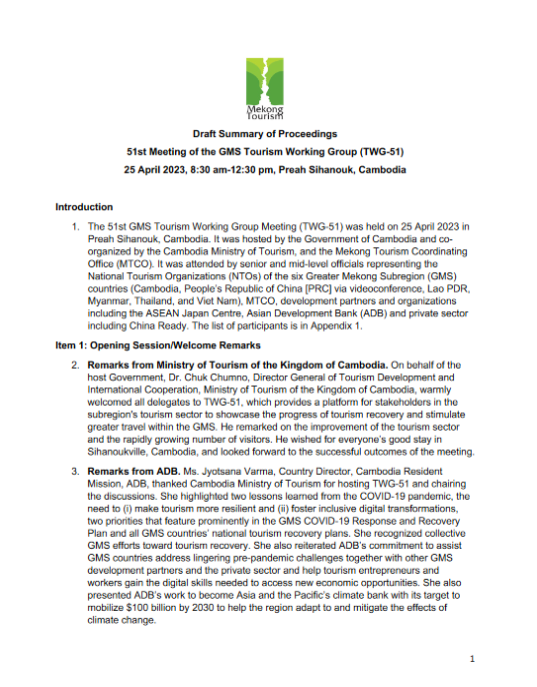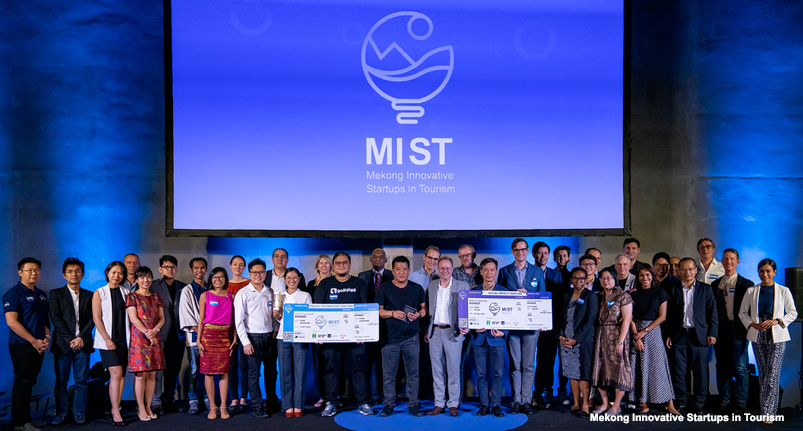
51st Meeting of the Greater Mekong Subregion Tourism Working Group (TWG-51)
The 51st GMS Tourism Working Group Meeting (TWG-51) was held on 25 April 2023 in Preah Sihanouk, Cambodia. It was hosted by the Government of Cambodia and co-organized by the Cambodia Ministry of Tourism, and the Mekong Tourism Coordinating Office (MTCO). The meeting was attended by senior and mid-level officials representing the National Tourism Organizations of the six GMS countries, MTCO, development partners and organizations, including the ASEAN Japan Centre, Asian Development Bank (ADB) and private sector, including China Ready.






